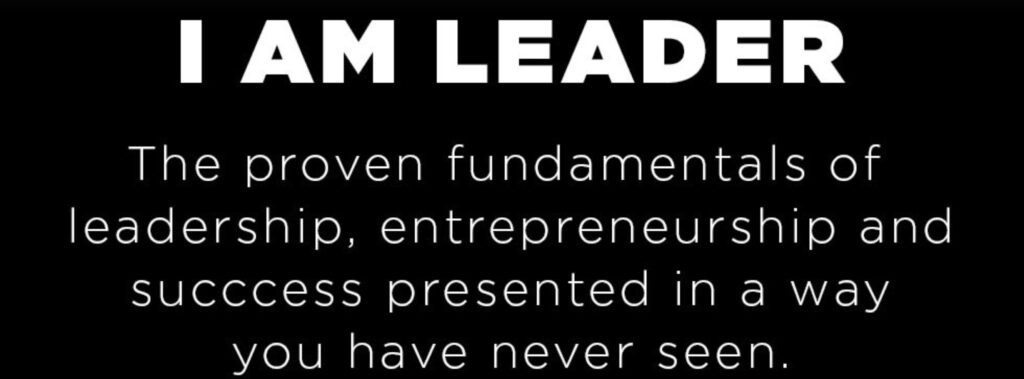Chris:
Hey everybody. I’m Chris Collins, and this is Christian Lafferty. Today. We’re going to talk about Christian’s weird fetish that involves metal in someone’s face. And you’re going to ask yourself the question. Is he more punk rock that I actually thought we’re going to talk about employee retention and how it’s going to get harder in the future. We’re going to talk about firing single moms and why you are mad at Christian about that. And we have a question from a new service advisor, Daniel and Texas, all that coming up on service drive revolution. You off a lot of people with your, would you rather, it seems that way. It really does seem Kim, the single mom she’s bastard,
Christian:
Her and her three kids are living in a minivan.
Chris:
It’s a funny, um, funny bit, very funny.
Christian:
It doesn’t feel funny when we’re going through it. Now it feels like I’m in advice. I feel like a lot of pressure. It’s super, super amount of pressure. Yeah.
Chris:
How, how do you think I’m handling my midlife crisis?
Christian:
Not bad. I feel like there’s, uh, uh, hair extensions that are coming in your future of a different color for sure too.
Chris:
Okay. Eric’s Uber frosted tips Jovi.
Christian:
Now you’re starting to see it. living on a prayer Bon Jovi all the way there. Yeah.
Chris:
I got to tell you that that’s not even in the, it’s not on the menu. No,
Christian:
I’ve put it in your subconscious. It might be extinctions. It’s that great? I think I’d be closer to shaving. Yeah,
Chris:
My head. No way. Yeah. I don’t know. I couldn’t imagine killing pretty tough with like a couple of hoop earrings and a bald head and a beard. Yeah. That’s a look for sure.
Christian:
It is. I feel like it’s, it’s a little more biker than you are. Oh, I’m a biker. What do you mean? I grew up in the Northwest.
Chris:
We’re talking about motorcycles, right? Not, yeah. Like hell’s angels. Yeah. No. Okay. Here’s your, your, would you rather we’re getting right to it? Huh? So everybody should know if you listen to the show that that Christian drives a Tesla. One of the things with Teslas is that you got to plug them in and charge them.
Christian:
Right.
Chris:
And so should you be in a precarious position of needing to charge your Tesla and like trade something to charge your Tesla? Let’s say you’re stuck somewhere and there’s none of the fancy Tesla charters. And you got to do the old fashioned plugging in. And when you plug it into the normal outlet, does it take like eight hours?
Christian:
Yeah. The most you get out of is 25 miles per hour with an ax. That’s actually with like the, the 200 amp thing.
Chris:
Okay. So let’s say you’re going to charge it for four hours. So then, Oh, you’re going to get 200 miles and four hours, 400, four hours would be 100 miles, a 100 miles. So you didn’t get a hundred miles that’s enough to get home or whatever. Right. So would you rather to charge a Tesla in exchange for labor or services? The
Christian:
Bartering system? Yes. I got it.
Chris:
Would you rather clean the sump in a wash rack that hasn’t been cleaned for? Like 10 years? Have you ever cleaned it up?
Christian:
Yeah. It’s the, it’s the most hideous smell. Yeah. Like it’s worse than sewage. I dunno. You’re going to spend four hours cleaning the sump. Okay,
Chris:
Honey, just the look on your face. How do you feel about that? Not so good. Drive a customer home with COVID. So a shuttle you’re going to drive the shuttle, but the customer clearly as Kobe, he sneezing coughing
Christian:
Fleming everywhere. There’s sputum the sputum on the wind.
Chris:
You’re driving him. Not in like a van, like you’re just in a loan car, like a Chevy man.
Christian:
I got the small one. No, no, forget the Malibu. It’s smaller. It’s the Aveo. Yeah. So
Chris:
Number one is you got to clean the something wash track number. Geez. You got to drive a customer home with COVID like clearly with COVID or you have to fix the head on machine that a new parts guy has put all the wrong parts in the wrong parts numbers. So the locators are all wrong. And you got to go through that whole thing and redo every, have you ever tried to do an inventory on a, on a hand-on
Christian:
Michelle, but I can imagine it’s a chore I’ve
Chris:
Gone in before where the machine is wrong. Like the parts are wrong. And then yeah. And it is, you got to sh so first of all, you got to shut everything down for like a couple of days you could die. If you’re in to kind of pull everything out and then reload it. And most of the time that machine doesn’t talk to the DMS, the way that it should. They’re just trying to paint the picture that you’re, you know, it has its own software, right? Yeah. So if anybody does know what the handle machine is, is it’s that parts machine. That’s like a, a parts department vending machine.
Christian:
Yeah. You type in the number and then the part comes up. It’s beautiful. Yeah. And then when it’s not needed, it disappears and all the things are on different layers. It’s a conveyor. Yeah.
Chris:
It really, really works well when it works well in
Christian:
It is an expensive disaster when it’s not going well. It’s so, so
Chris:
To charge your Tesla, would you rather clean this up in a wash rack, drive a customer with COVID home or fix a, an old machine that, uh, is completely out of whack.
Christian:
Okay. A couple of quick questions. Uh, do we, is it a wash and wax or just a wash?
Chris:
Um, why does that make a difference?
Christian:
These are my questions. I’m allotted a couple of questions for clarification. Why does the wax matter? Because the wax smells even worse. Oh, that’s just whack. Crasher. Okay, great. Okay. Um, the wax smells even worse. Yeah. Like the more stuff you put in there, the worst it’s now
Chris:
I can’t imagine how it could smell worse. It’s horrible. Every time I’ve ever had to do that,
Christian:
Honestly, my stomach’s turning, thinking about it. Oh, it’s the worst. So bad. And then go to this song with this stuff, get into the rails and, Oh, my good Lord. Okay.
Chris:
You see how I’m, I’m saving your reputation by leaving the single mom. Yeah. Cause clearly it could have been some dry the customer, the COVID home or fire, a single mom or single moms would probably be the third one on everyone.
Christian:
Sorry, Janet. It’s time to go. No, I wouldn’t do that to Janet. So you’ve actually named her. Yeah.
Chris:
Um, or clearly fired a single mom named Janet before
Christian:
You never know. Okay. So goodness gracious. And we’re in an avail. Um, how far is the drive with the COVID? The COVID customer.
Chris:
10 months. Okay, cool. Does that matter?
Christian:
Yeah. A little bit. Uh, is the COVID customer chatty on top of it? Oh yeah, for sure. Biscuit is the parts department with the hand on the machine profitable. Clearly not. Okay, good. Good. So,
Chris:
And you’re going to have to do that all yourself. Like nobody in there is going to help you. Cause they don’t know anything. It’s not their fault.
Christian:
This is awful. Can
Chris:
You imagine if you worked for Honeywell, like
Christian:
Yeah. Like the calls that they must get, it’s a lot of fun.
Chris:
So that’s what I do is I, I, uh, put myself under shock therapy and I recall I’ve forced myself to recall the worst experiences I’ve ever had. And then I create them into a game called would you rather? Yeah,
Christian:
This is great. I love this segment. I’ve never driven a customer home with COVID men either.
Chris:
I haven’t, since COVID started and I haven’t even been in an Uber.
Christian:
Okay. I think I’ve been in three, not many, uh, just in traveling, but yeah, you’re right. Um, but always with the hand sanitizer in my hands and I try not to touch anything, but, um, I think that I’ve made my decision. I’m going to, uh, I’m going to take the COVID you’re going to take the COVID. Yeah. I have a lot of faith in my immune system. Wow. And I hate the carwash thing. It’s so disgusting. Yeah. Wow.
Chris:
Okay. Well there you have it. Would you rather super
Christian:
Curious if anyone else would take the COVID or if I’m crazy,
Chris:
I’m posting in the comments, what you think about um, Christian’s pickup.
Christian:
Yeah. Speaking of cleaning. It’s interesting. I was going to tell you this, uh, I sold my vacuum cleaner the other day you sold your vacuum cleaner. It was just collecting dust.
Chris:
That’s funny. Let’s talk about our subject today. I’m ready. Employee retention. Now I think this is a topical subject for a couple of reasons. One is that clearly with the change in population and the current marketplace that we’re in. And also the fact that a lot of people are making more staying at home than they are working, that people are looking for jobs there isn’t a huge, um, influx of people looking for jobs, because if they’re making money on unemployment, they don’t have to pay rent. Why would they,
Christian:
There’s not a whole downside of staying home and doing nothing. Yeah. Yeah. It’s, it’s definitely, you’re competing against doing nothing to get and keep people. I also think that one thing I wanted to say about this topic too, is I’m actually kind of proud of a lot of our, a lot of our clients is kind of where the subject came from is that we’re already having this discussion about the quality of employee retention. And I think that this is one of the first times that I can think of in recent history where we’re actually starting to get ahead of the curve because in the coming years, I think that employees are going to be harder to get and making them happy is probably a pretty important thing if we’re going to have a healthy environment to work in. So, but man, I tell you what, it’s a good topic.
Chris:
Yeah. On the, on the technician side also like the biggest part of our population, the baby boomers are retiring and there aren’t enough kids born, let alone born that want to be taxed to come into the industry to replace them. So it’s getting harder and harder to recruit and retain techs that that’s only going to get worse. So what would you do to retain employees? Or what do we see with our clients that have the best employee retention? And I think employee retention also goes along with recruiting because that’s a part of it too, right? Yeah.
Christian:
So I think that, um, there’s a couple of really nice, uh, tricks that people are doing. One is I think employee gratitude, like the public gratitude and saying that we’re happy that we have our people. I think that that’s one of the things that’s working really well. And then clarity, I think is another part of it. Like what’s the team.
Chris:
Okay. So back up, you just rolled your eyes at me. Did you throw me in the ocean? No. Um, what do you mean? My gratitude? I was like, how do you show gratitude with employee recognition? What does that mean?
Christian:
So I think that you can have, you know, contests of recognition when someone’s been there for a long time and maybe there’s a plaque or like if I’m at like to me, if I’m employing a shop full of technicians, I want them to feel like their areas home. So I want to personalize it. I want to just short of putting a service drive, revolution, sign above there.
Chris:
The shops look like a man cave a little bit.
Christian:
I want them to feel like it’s home,
Chris:
Like draft beer football. I didn’t think
Christian:
About the draft beer, but that’s not a bad idea
Chris:
Just to have a, have a beer and work on it,
Christian:
Work on a visa. That’s it. That’s why we have two hands, one for the ranch, one for the beer.
Chris:
That’s funny what I was, uh, uh, service advisor for Audi. They were launching some new Audi models and literally technicians of Germany came over and they were taking the Audis up to like Mount Rainier somewhere for car and driver to drive them through the Hills or whatever. And those guys literally were drinking beer while they were prepping the cars.
Christian:
Yeah. It was funny. That’s pretty.
Chris:
And they’re making fun of us because we want a cup holders and they’re just checking beer.
Christian:
Uh, pretty much drink beer all day. The Germans are like, you only need a cup holder if you put the beer down. Right.
Chris:
We, we want, we wanted it for our coffee, but um, okay. So I think that the thing that will differentiate you from other employers in the marketplace is to stand for something and have a vision. Yeah. Cause, cause especially younger kids, they want to be a part of something that actually is making a difference in the world. So if you’re just trying to get by, if you’re, you know, just maintaining and you’re not actually trying to be the best in the industry, trying to push the industry forward and really have a passion for customers and making a difference with what you do, you’re going to attract a lower-class employee. Yeah. If at all right. So having vision, I think is one of the most important ones standing for something. And I think the, the other thing with that is when you stand for something it’s important to cut the bottom, like, you know, uh, performers don’t want to be around non-performers right. And so if you want to attract the best people, you need to protect that by quickly firing the people that aren’t good by quickly eliminating people that don’t care or don’t follow the vision or aren’t in line with whatever you’ve decided. And I think that oftentimes even as we sit here today, most of the time we let people underperform and just get by and that affects the other performers and it lowers the bar for everyone.
Christian:
Yeah. So I think that that’s a big part of it. And what you’re saying is, is you have to eliminate employee entitlement, right? Like I think that there’s re employee retention is great. It’s good to talk about. But I do think that there are some people that side so far the wrong way that they’re keeping the wrong people. And I think that there’s, there’s just a little bit of a healthy mix. Like we want people to stay in one and stay forever. But if they know that it’s still a performance-based position, then there’s a little bit more to the swing of your having the right people on the team that want to perform. And if you don’t perform, there’s a murder line. Right. And if you are getting rid of the bottom 20 or whatever it is, you know, there’s, there’s different theories on how many people you should get rid of. But I think that the top 80 are way more important than the bottom 20. Yeah. And I would, I’d be happy with having healthy turnover, not 100% employee retention, as far as that goes,
Chris:
It wasn’t somebody on the elite call the other day talking about how they eliminated a few people because of performance. And that the rest of the employees came to me and were like, man, what took so long?
Christian:
Right. So glad you did that. And that particular person is one of our best performers. Yeah. He is one of our best performing stores in the country.
Chris:
I remember one year, top dog. And we had some of their top advisors at the meeting and we asked them like, Hey, how can we motivate the, the chihuahua’s the bottom performer? Then it surprised me. But they were like fire up. Like they did. There was no like, you can’t motivate them. They’re not, they’re not motivated. Right.
Christian:
And th there’s those, those people that have that figured out. And then we as managers, like we spend so much time and energy trying to fix people that are telling us who they are.
Chris:
I think everybody needs to embrace the fact that it’s going to get harder and harder to recruit and retain employees in the future. And so you need to create a place that’s special. You need to stand for something you need to be cutting edge. You need to be progressive in your thoughts and your approach to customers. And I think less and less people are going to want to work for a business that doesn’t put the customers first and doesn’t care about the value you’re providing in the marketplace, because they’re going to, they’re going to sense that it reflects on them on social media, just in general. They don’t, they don’t want to share the business that they work at because they feel like it’s unethical or they don’t care about customers or there’s so many issues. And so, you know, more and more, I hear from people that we interview, Oh, I looked at their, their reviews on Google.
Chris:
I did a background check on the company. So they’re, they’re looking at you as a, as an employer, wondering what you stand for, what people are saying and believe it or not, you might disagree with me in the moment when I say this, but you’ll agree with me in time that how you treat customers is how you treat employees. It’s exactly the same. And they know that and they understand that. And so the idea that people are reviewing you online and having a terrible experience is directly in line with people that work for you have a terrible experience because how you do anything is how you do everything. So the two are connected. If you don’t stand for a great customer experience, if you’re not constantly improving, if you’re not offering training in a career path and a way for somebody to improve their lifestyle, their circle of friends, their, you know, just how they feel about life in general, being inspired versus being depressed. People aren’t going to want to work for you in the future. The, the game is going to be much harder and you need to take it serious and you need to start thinking about it now.
Christian:
Wow. Well said, I don’t think I ever really made the connection between customer experience and employee experience. Oh, isn’t it? The same? It’s totally the same, but I never made the connect.
Chris:
When we go into a service department that’s that’s uh, screwing customers over or has a bad reputation, or let’s say a client buys a dealership that’s ran into the ground or whatever the employees are. Usually they’re either really shady or they’re really not in line with where we want to go. How you do anything is how you do everything. Christian. I try to set. Okay. So true. Can we go to a question? Let’s answer a question from the audit to remember the phone number. If you have a question is eight three, three three, ask SDR that’s eight three, three, three. Ask SDR. If we play your question on the big show, we will send you a little love package, like an SDR t-shirt and mug hat notebook, maybe something else. Maybe we’ll throw a bulldog in there. See, depends not got a real bulldog. Yeah. You give Olivia away. How dare you.
Christian:
I’m not comfortable with you have your favorites. I do. Totally.
Chris:
You probably got to turn that on now. I don’t see the light on the JBL.
Chris:
Turn D is your Bluetooth on?
Christian:
I’m not hooked up to them. I haven’t hooked up because this phone is that thing’s favorite. And if I’m in one Oh three, it picks up the thing in one-on-one. So I had to completely unpair from it. It’s weird. Have you, did you notice that it always picks up my phone over everyone else? Talk about playing favorites
Chris:
Daniel from Texas like it. So let me start part of being, making that transition from parts to service. Daniel, that’s all about scripts. So I know the script that you’ve got in your head already. Parts, hold parts, hold. You’ve got to get out. You got to, got to get out of your vocabulary. What you need to learn to say, I was just going to call you. So the differences in working in parts and being a service advisor is just your excuse. That’s it part sold versus when a customer calls you, you go, Oh, I was just going to ask him to call you all day long. You’re like, Oh, I was just going to call you. Danielle is on its way to being a legend. My training is complete. Are you going to send Daniel that t-shirt I usually said to him, Daniel, let me know if you want it.
Chris:
It’s all yours, buddy. That’s funny. I think Daniel, the best thing probably to think about is connecting with customers about the things that matter. Collecting customers is all about becoming their trusted friend. So remember, the car is a commodity or the truck is a commodity. What separates you from everybody else is the relationship you have with the customer. So when a customer pulls in, instead of saying, what brings you in today? Or what’s going on with the car? Talk about, Oh, Hey, where are you headed today? Where do you work? Well, Oh, you have three kids. What are their names? What do they do? What do they like? Are they in the video game? W you know, if you ask three to four questions about any given path, the customer will lead you to what’s important. And then talk about that. Talk about what’s important to them and the vehicle and the service side of it is the secondary dialogue. It’s the CoStar. It’s not the star of the show, make the customer and your, you know, your friendship with them and treating them like family, the star of the show and make the CoStar, the maintenance and the repair of the vehicle, because let’s face it. There’s a, I don’t know, 180,000, um, service centers in this country. What really, really matters is, is your relationship with those customers, uh, more than anything else?
Christian:
Yeah, that’s perfect. That 180,000 service centers, but you’re only at one of them. So make that the differentiator. You gotta be the reason people are seeking you out.
Chris:
It’s just a lift gate. It can’t go that long. They’re just dumping off a backhoe or something.
Chris:
Thanks for that question, Daniel from Texas, and, uh, make sure you tune in next time to hear about my midlife crisis. Let me see if I shaved my head,
Christian:
Who knows it’s going to be great.
Chris:
What about like a 19 year old girlfriend in a Corvette convertible 19. I’m just trying what
Christian:
I don’t care about. What
Chris:
If I start wearing like ed Hardy clothes all the time or affliction? Remember affliction affliction.
Christian:
Sure. Yeah. That’d be awesome. Oh, no, his ring. Ooh. I can’t do that. Okay. Okay.
Chris:
I always think it’s funny when adults have nose rings. I always think,
Christian:
I always wonder what’s getting stuck up there.
Chris:
The whole thing is interesting to me also like neck tattoos and all that.
Christian:
Yeah. Now I like piercings for some reason. Like the I’d like nose rings and eyebrow rings. And would you get it? And I was you. No, I like it on women. What? But not on men. Does your girlfriend have a nose ring? No. But have you brought it up? No, I wouldn’t make her get one.
Chris:
You might say, look, I find it very sexy and I do find it very sexy. Maybe she would, I don’t know. That’s a fetish for you to have. I don’t know if it’s true
Christian:
Fetish, but I like tattoos and piercings, but on the face.
Chris:
Well, not tell you she had an eyebrow ring. Would you think that’s hot now?
Christian:
A totally awesome. You’re
Chris:
Dead serious. That’s serious. I can’t tell if you’re joking. I know it’s weird. Cause it’s a segue to a joke about mom. No,
Christian:
This is really where like we’re getting into the psyche of Christian and his female tastes. Yeah.
Chris:
So it would really turn you on if your girlfriend had a nose ring or an eyebrow ring, like right through the heart of the dog
Christian:
To the heart of the hot dog. Yeah. I know.
Chris:
What about that? What happened in your childhood that you think metal in the faces?
Christian:
God, I dunno, but I do so weird. I think that even in this point, people are still trying to figure out if we’re joking or
Chris:
We got it. We’re joking. Well, on that note, we’ll see you next time on service drive revolution.










